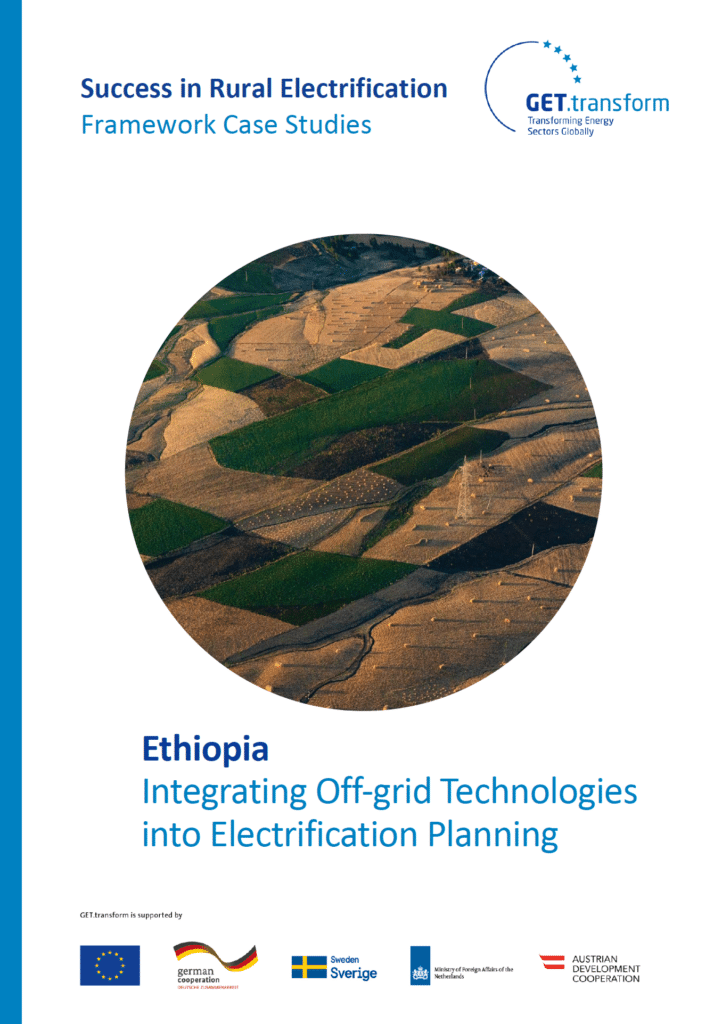Recognising that the success of off-grid electrification rests upon solid planning, the Government of Ethiopia developed an updated version of its National Electrification Program (NEP 2.0) in 2019. Ethiopia uses a digitalised master planning approach with numerous tools and cross-checks to designate the most suitable access technology per community throughout the country.
The strength of the master plan lies in the combination of a geospatial mapping with cross-referenced and digitised baseline data, in combination with an Energy Access Household Survey to create a clear baseline for electricity access, against which progress can be tracked through future surveys. While this methodology enables planning from a purely least-cost perspective, the Government of Ethiopia plans to further utilise the Energy Access Survey to finetune planned supply to beneficiaries by location and service, moving away from the mere measurement of “access”, to a more service-centric approach, identifying the necessary level of service to be provided in each area.
Seen as a living master plan, Ethiopia enables different institutions to provide updates to the geospatial map as new information becomes available and electrification projects are implemented. The plan is also able to incorporate new layers of useful data, with the latest updates focusing on areas with high agricultural potential or high agricultural activity, as well as government institutions with high demand for electricity.
While essentially a strength, the great detail and breadth accomplished in the planning approach also provides a challenge. Integrating the Ethiopian electrification plan’s implications into the broader framework of policy and programming will be necessary to create harmony between various agendas and actors, and ensure robust commitment from all agencies.
In its case study series, GET.transform works with governments, companies and industry experts to feature best practice regulatory frameworks that have solved common challenges in the development of the rural electrification and off-grid market.
Find additional insights in the Sierra Leone case study on a cost-reflective mini-grid tariff or the Uganda case study on a bundled approach to mini-grid tendering tendering.



